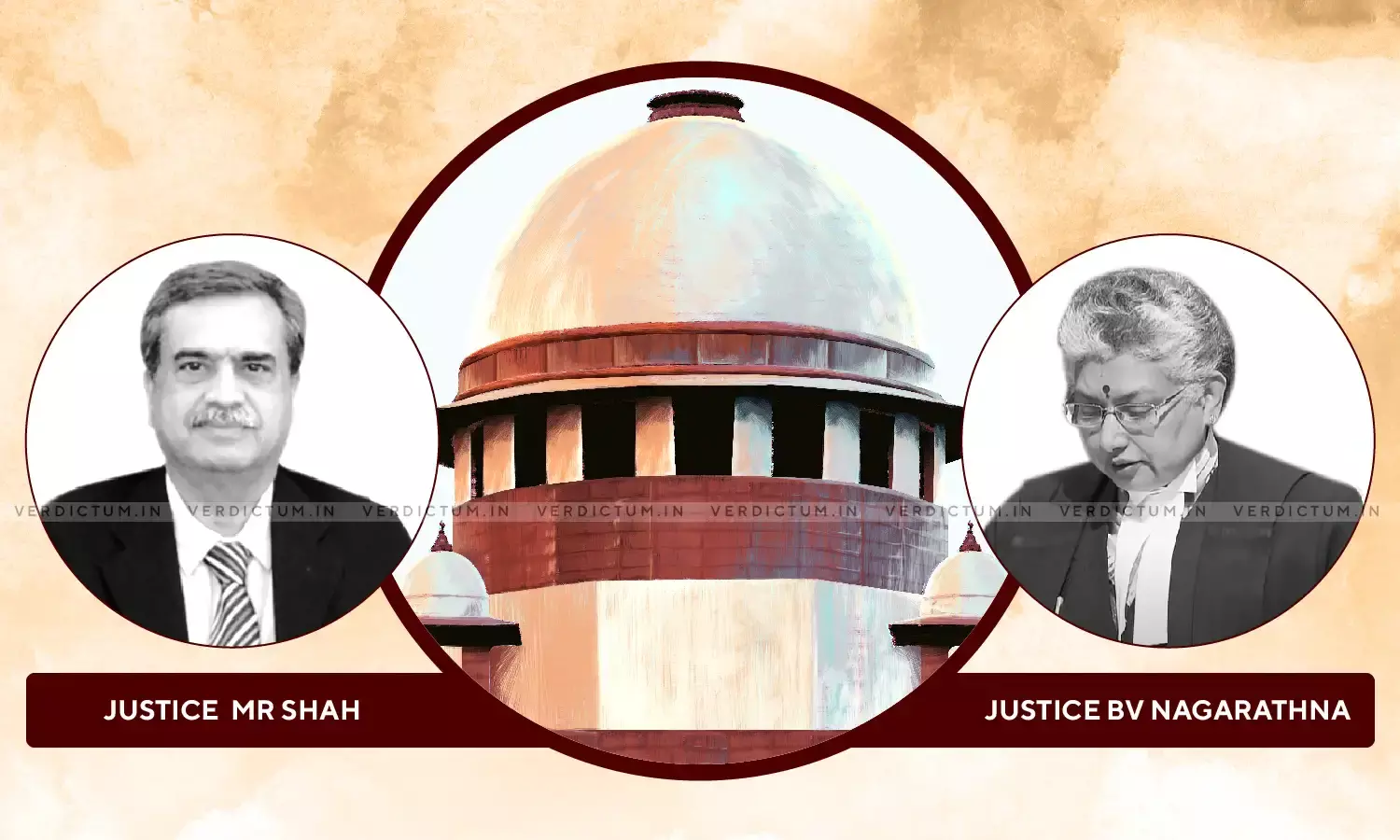Accused May Not Be Convicted On Deposition Of Sole Witness – Supreme Court In Double Murder Case
The two-judge bench of Justice M. R. Shah and Justice B. V. Nagarathna in a double murder case has held that the accused may not be convicted on the deposition of the sole witness, there must be further evidence to connect the accused with the commission of an offence.
In this case, aggrieved by the Order of the Gujarat High Court confirming the judgment and conviction passed by the Trial Court for offences under Sections 302 307 & 328 of IPC, the Appellant/Original Accused approached the Supreme Court.
The prosecution established the double murder of the co-accused's mother & brother by strangulation. The murder was a criminal conspiracy, to kill the family members of the co-accused so as to eliminate any objection to her love marriage with the Accused. In furtherance of the same, an attempt to kill the younger brother of the co-accused was also carried out. A bottle of pesticide was also recovered from the scene of offence.
Relying on the deposition of the sole eye-witness, the younger brother & other evidences, the Trial Court convicted the Accused. On that the Original Accused preferred an appeal before the High Court. The High Court dismissed the appeal, confirming the order of conviction passed by the Trial Court.
Challenging the dismissal by the High Court, the Accused approached the Supreme Court.
Counsel Harinder Mohan Singh, appeared on behalf of the Original Accused/Appellant while Counsel Deepanwita Priyanka represented the respondent-State before the Apex Court.
On considering the submission made by the Counsels, the Bench expressed that – "the accused may not be convicted on the deposition of the sole witness. There must be some further evidence to connect the accused with the commission of the offence."
In this context, the Bench observed that – "The other circumstances which implicate the accused is recovery of the bottle of pesticide from the place of occurrence"
Further, the Bench noted that – "The accused has also failed to explain the aforesaid incriminating material/circumstances found against him namely the purchase of pesticides by him, prior to the occurrence and that the very bottle of pesticide which was purchased by him was found from the place of occurrence."
In view of the above, considering the given facts and circumstances of the case, the Apex Court confirmed the conviction and the sentence imposed by the Trial Court, as affirmed by the High Court and dismissed the Appeal.



